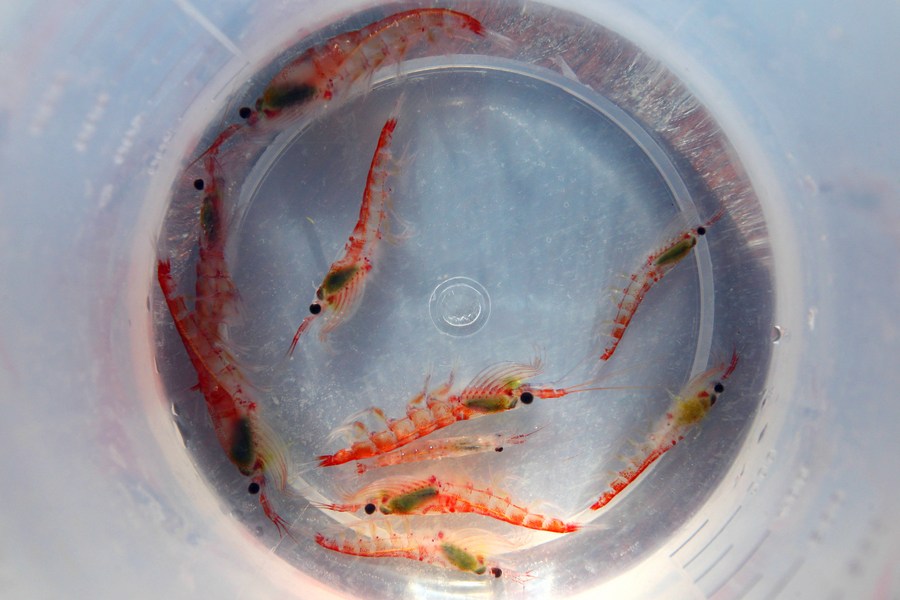JINAN, March 4 (Xinhua) -- A research group led by Chinese institutes has made a breakthrough in the study of the genome of Antarctic krill, providing insights into the environmental adaptations and population evolution of the marine animal.

(File photo: Xinhua)
The findings were published online in the research journal Cell on Thursday.
According to the paper, the enormous biomass of Antarctic krill is vital to the Southern Ocean ecosystem. However, the large size and complexity of the genome have so far prevented its assembly and hindered research on the genetic underpinnings of Antarctic krill adaptations.
The research group led by the Yellow Sea Fisheries Research Institute of Chinese Academy of Fishery Sciences and BGI-Qingdao adopted new sequencing technology, and successfully achieved the assembly of the 48 Gb chromosome-level Antarctic krill genome. The size is about 16 times that of the human genome.
The newly discovered genome assembly reveals that the huge size of the Antarctic krill genome can be ascribed to repetitive sequence expansions. The finding also provides insights into the species' adaptations to the cold and the highly seasonal Antarctic environment.
Analysis shows that an apparent drastic reduction in krill population size 10 million years ago and a subsequent rebound 100,000 years ago coincided with climate change events.
"The findings offer new theoretical references for environmental adaptations and population insights of marine creatures, and provide guidance for biodiversity protection and research on the population genetics of marine life," said Zhang Linlin, a researcher at the Institute of Oceanology, Chinese Academy of Sciences.


